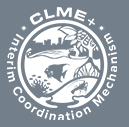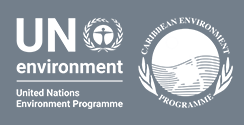|
Insular Caribbean
|
Central & North America |
South America |
Insular Caribbean |
Central & North America |
South America |
Displaying 51-60 of 98 results
 indicates that the Project Profile has been verified and it’s being managed by the project’s profile manager.
indicates that the Project Profile has been verified and it’s being managed by the project’s profile manager. -
Civil society’s contribution to biodiversity conservation in the Caribbean Islands biodiversity hotspot
Contribución de la sociedad civil a la conservación de la biodiversidad en el hotspot de biodiversidad de las Islas del CaribeBrief Description:The CEPF ecosystem reprofiling has resulted in the identification of 324 Key Biodiversity Areas (KBAs) in the Caribbean Islands Biodiversity Hotspot, 167 of which are in CEPF-eligible countries. The reprofiling exercise concluded that biodiversity of the Caribbean Islands Hotspot continues to be at serious risk of species extinctions. Of the taxa reviewed for the preparation of the ecosystem profile, 992 species are assessed as globally threatened. Of the 992 globally threatened species in the Caribbean Islands Hotspot, 575 species occur in countries eligible to receive CEPF funding. Seventy-seven grants were awarded to 68 civil society organisations. Seventy-eight per cent of the funds committed went to local and regional Caribbean CSOs.La remodelación del ecosistema del CEPF ha dado como resultado la identificación de 324 Áreas Clave de Biodiversidad en el Hotspot de Biodiversidad de las Islas del Caribe, 167 de las cuales se encuentran en países elegibles para el CEPF. El ejercicio de modificación del perfil concluyó que la biodiversidad del hotspot de las islas del Caribe sigue estando en grave riesgo de extinción de especies. De los taxones revisados para la preparación del perfil del ecosistema, 992 especies están evaluadas como globalmente amenazadas. De las 992 especies amenazadas a nivel mundial en el hotspot de las islas del Caribe, 575 especies se encuentran en países elegibles para recibir fondos del CEPF. Se otorgaron setenta y siete subvenciones a 68 organizaciones de la sociedad civil. El 78% de los fondos comprometidos se destinó a OSC locales y regionales del Caribe.Lead Organization: CANARIDonor: Critical Ecosystem Partnership Fund (CEPF), IUCN, GEF, Japan, MacArthur Foundation and the World BankProject ID:Geographic Scope: Multicountry (regional)Project Status: CompletedLast Update: 15/12/2020
Start Date: 2010-10-01
End Date: 2016-07-01Project Profile Manager: Anna Cadiz-Hadeed
Contact Email: cepf-rit@canari.org
Contact Phone:Partners: Fauna and Flora International, Environmental Awareness Group, International Iguana Foundation, Windsor Research Centre Limited, National Parks, Rivers and Beaches Authority, PRONATURA, Caribbean Coastal Area Management Foundation, Fundación José Delio Guzmán Inc.Grant (USD): $6,900,000.00Total co-financing (USD): $0.00(Co) financing not originating from GEF:Participating Country(s):Dominican Republic
Haiti
Jamaica
Contributions to the 10-year CLME+ Strategic Action Programme (2015-2025)
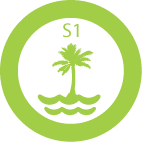
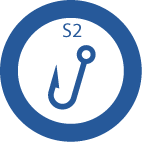

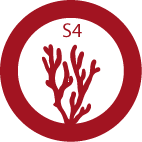
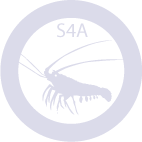

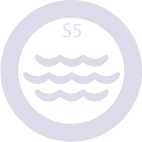
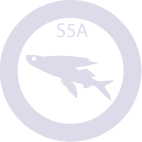
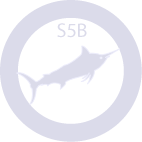
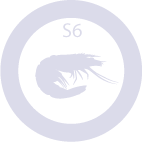 Please click on the colored SAP Strategy icon to obtain more information on the specific SAP Actions this initiative is contributing to1. Enhance the regional governance arrangements for the protection of the marine environment
Please click on the colored SAP Strategy icon to obtain more information on the specific SAP Actions this initiative is contributing to1. Enhance the regional governance arrangements for the protection of the marine environment
1.1. Establish and operationalise a formal agreement for coordinated action with Brazil2. Enhance the regional governance arrangements for sustainable fisheries
2.13. Establish and/or enhance the data and information quality and collection and management capacity of the regional, sub-regional and national fisheries governance arrangements, including through the establishment of public-private partnerships3. Establish and operationalise a regional policy coordination mechanismfor ocean governance, with initial focus on shared Living Marine Resources
3.6. Develop and coordinate integrated and sectoral sustainable financing strategies for the cost-effective implementation of broader ocean governance in the region, with a short and medium term focus on sLMR governance3.7. Facilitate the preparation of data and information products and the uptake of monitoring and research outputs by (sub)regional and national science-policy interfaces4. Enhance the governance arrangements for ecosystem-based management for reefs and associated ecosystems
4.5. Develop and implement initiatives for sustainable livelihoods by building capacity for diversification, fostering and facilitating viable alternative sources of Decent Work and/or improved incomes, and creating addedvalue (e.g. through marketing and sales)4A. Enhance the governance arrangementsfor implementing an ecosystem approach for spiny lobster fisheries
4B. Enhance the governance arrangementsfor implementing an ecosystem approach for queen conch fisheries
5. Enhance the governance arrangements for implementing an ecosystem approach for pelagic fisheries
5A. Enhance the governance arrangements for implementing the ecosystem approach for flyingfish fisheries
5B. Enhance the governance arrangementsfor implementing an ecosystem approach for large pelagics fisheries
6. Implement EBM/EAF of the Guianas-Brazil continental shelf with special reference to the shrimp and groundfish fishery
Contributions to the 2030 UN Sustainable Development Agenda (SDG’s)
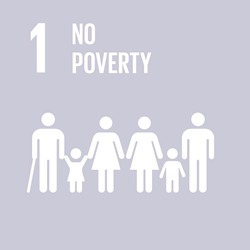
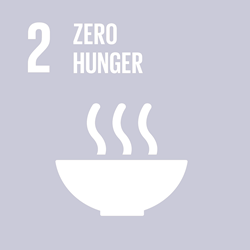
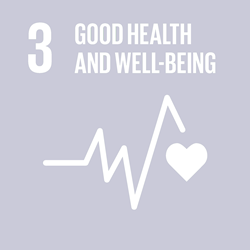
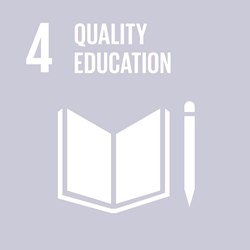
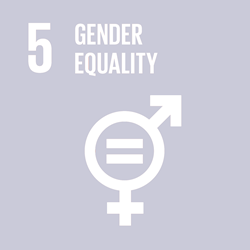
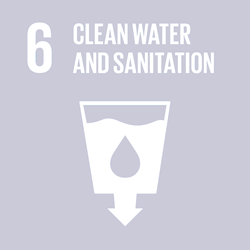
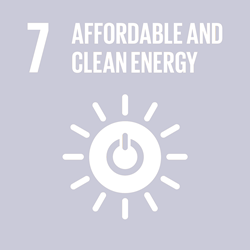
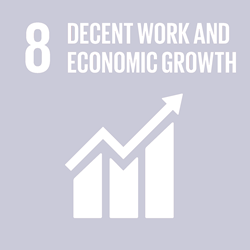
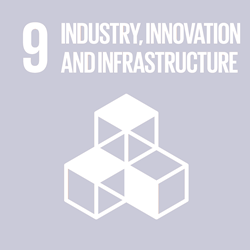
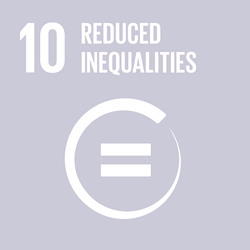
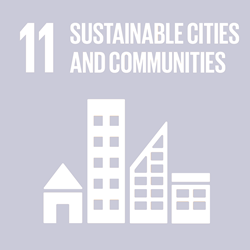
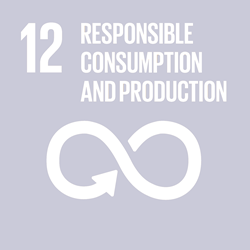
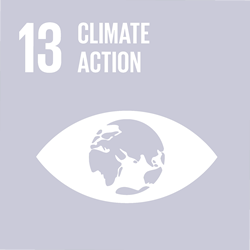
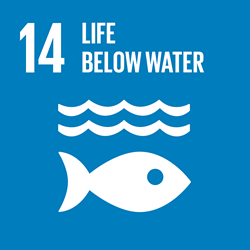
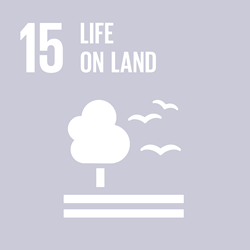
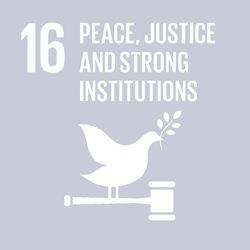
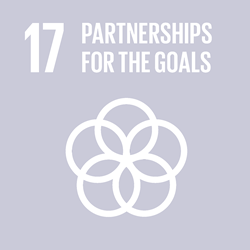
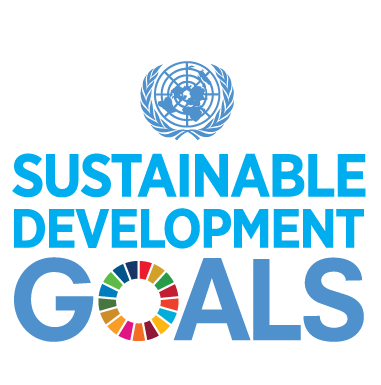 Please click on the SDG14 colored icon to see to which specific SDG14 targets this initiative is contributing.1. End poverty in all its forms everywhere
Please click on the SDG14 colored icon to see to which specific SDG14 targets this initiative is contributing.1. End poverty in all its forms everywhere
2 End hunger, achieve food security and improved nutrition and promote sustainable agriculture
3 Ensure healthy lives and promote well-being for all at all ages
4 Ensure inclusive and equitable quality education and promote lifelong learning opportunities for all
5 Achieve gender equality and empower all women and girls
6 Ensure availability and sustainable management of water and sanitation for all
7 Ensure access to affordable, reliable, sustainable and modern energy for all
8 Promote sustained, inclusive and sustainable economic growth, full and productive employment and decent work for all
9 Build resilient infrastructure, promote inclusive and sustainable industrialization and foster innovation
10 Reduce inequality within and among countries
11 Make cities and human settlements inclusive, safe, resilient and sustainable
12 Ensure sustainable consumption and production patterns
13 Take urgent action to combat climate change and its impacts
14 Conserve and sustainably use the oceans, seas and marine resources for sustainable development
14.2 By 2020, sustainably manage and protect marine and coastal ecosystems to avoid significant adverse impacts, including by strengthening their resilience, and take action for their restoration in order to achieve healthy and productive oceans14.5 By 2020, conserve at least 10 per cent of coastal and marine areas, consistent with national and international law and based on the best available scientific information15 Protect, restore and promote sustainable use of terrestrial ecosystems, sustainably manage forests, combat desertification, and halt and reverse land degradation and halt biodiversity loss
16 Promote peaceful and inclusive societies for sustainable development, provide access to justice for all and build effective, accountable and inclusive institutions at all levels
Other Regional and Global Commitments
Regional Emerging Issues
Updating the Critical Ecosystem Partnership Fund (CEPF) Ecosystem Profile for the Caribbean Islands Biodiversity Hotpot
Actualización del perfil de ecosistemas del Fondo de asociación para ecosistemas críticos (CEPF) para el foco de biodiversidad de las islas del CaribeBrief Description:The goal of the project is to update the ecosystem profile for the Caribbean Islands biodiversity hotspot through a participatory process. The ecosystem profile will take advantage of emerging opportunities and align with existing investments by governments and other donors, and will provide a platform through which funders and other partners interested in supporting civil society groups in the hotspot can share goals and strategies. The updated profile will be a snapshot of the hotspot in 2017 that describes the current state of, and threats to, biodiversity and the capacity of civil society to engage as a partner in conservation. The framework for a new investment in the Caribbean Islands biodiversity hotspot is being done through a series of national and regional meetings, which would bring opportunities to shape the updated CEPF ecosystem profile and investment framework for the region. This project follows a successful initial five-year investment that ended in July 2016. The project is comprising on a consultative process that will define the parameters of the new CEPF investment in the Caribbean.El objetivo del proyecto es actualizar el perfil del ecosistema para el hotspot de biodiversidad de las Islas del Caribe a través de un proceso participativo. El perfil del ecosistema aprovechará las oportunidades emergentes y se alineará con las inversiones existentes de los gobiernos y otros donantes, y proporcionará una plataforma a través de la cual los financiadores y otros socios interesados en apoyar a los grupos de la sociedad civil en el hotspot pueden compartir objetivos y estrategias. El perfil actualizado será una instantánea del hotspot en 2017 que describe el estado actual y las amenazas a la biodiversidad y la capacidad de la sociedad civil para participar como socio en la conservación. El marco para una nueva inversión en el hotspot de biodiversidad de las Islas del Caribe se está realizando a través de una serie de reuniones nacionales y regionales, que brindarían oportunidades para dar forma al perfil del ecosistema y el marco de inversión actualizados del CEPF para la región. Este proyecto sigue a una exitosa inversión inicial de cinco años que finalizó en julio de 2016. El proyecto comprende un proceso consultivo que definirá los parámetros de la nueva inversión del CEPF en el Caribe.Lead Organization: CANARIDonor: Critical Ecosystem Partnership Fund (CEPF), IUCN, GEF, Japan, MacArthur Foundation and the World BankProject ID:Geographic Scope: Multicountry (regional)Project Status: OngoingLast Update: 15/12/2020
Start Date: 2016-07-01
End Date: 2020-10-01Website:https://www.cepf.net/grants/grantee-projects/cepf-regional-implementation-team-caribbean-islandsProject Profile Manager: Nicole A. Brown
Contact Email: nicolebrown@canari.org
Contact Phone:Partners: BirdLife International, IUCN, NY Botanical GardenGrant (USD): $1,021,430.00Total co-financing (USD): $895,863.00(Co) financing not originating from GEF:Participating Country(s):Bahamas
Barbados
Dominica
Dominican Republic
Grenada
Haiti
Jamaica
Saint Lucia
Antigua and Barbuda
Saint Kitts and Nevis
Saint Vincent and the Grenadines
Contributions to the 10-year CLME+ Strategic Action Programme (2015-2025)









 Please click on the colored SAP Strategy icon to obtain more information on the specific SAP Actions this initiative is contributing to1. Enhance the regional governance arrangements for the protection of the marine environment
Please click on the colored SAP Strategy icon to obtain more information on the specific SAP Actions this initiative is contributing to1. Enhance the regional governance arrangements for the protection of the marine environment
1.5. Establish and/or enhance the capacity of the regional,sub-regional and national governance arrangements for the involvement of civil society in the implementation of the EBM/EAF approach (IGOs,NGOs,CBOs,private sector...)1.10. Establish and/or enhance the data and information quality and collection and management capacity of the regional, sub-regional and nationalgovernance arrangements for the protection of the marine environment, including through the establishment of public-private partnerships2. Enhance the regional governance arrangements for sustainable fisheries
3. Establish and operationalise a regional policy coordination mechanismfor ocean governance, with initial focus on shared Living Marine Resources
3.6. Develop and coordinate integrated and sectoral sustainable financing strategies for the cost-effective implementation of broader ocean governance in the region, with a short and medium term focus on sLMR governance3.7. Facilitate the preparation of data and information products and the uptake of monitoring and research outputs by (sub)regional and national science-policy interfaces4. Enhance the governance arrangements for ecosystem-based management for reefs and associated ecosystems
4.5. Develop and implement initiatives for sustainable livelihoods by building capacity for diversification, fostering and facilitating viable alternative sources of Decent Work and/or improved incomes, and creating addedvalue (e.g. through marketing and sales)4A. Enhance the governance arrangementsfor implementing an ecosystem approach for spiny lobster fisheries
4B. Enhance the governance arrangementsfor implementing an ecosystem approach for queen conch fisheries
5. Enhance the governance arrangements for implementing an ecosystem approach for pelagic fisheries
5A. Enhance the governance arrangements for implementing the ecosystem approach for flyingfish fisheries
5B. Enhance the governance arrangementsfor implementing an ecosystem approach for large pelagics fisheries
6. Implement EBM/EAF of the Guianas-Brazil continental shelf with special reference to the shrimp and groundfish fishery
Contributions to the 2030 UN Sustainable Development Agenda (SDG’s)

















 Please click on the SDG14 colored icon to see to which specific SDG14 targets this initiative is contributing.1. End poverty in all its forms everywhere
Please click on the SDG14 colored icon to see to which specific SDG14 targets this initiative is contributing.1. End poverty in all its forms everywhere
2 End hunger, achieve food security and improved nutrition and promote sustainable agriculture
3 Ensure healthy lives and promote well-being for all at all ages
4 Ensure inclusive and equitable quality education and promote lifelong learning opportunities for all
5 Achieve gender equality and empower all women and girls
6 Ensure availability and sustainable management of water and sanitation for all
7 Ensure access to affordable, reliable, sustainable and modern energy for all
8 Promote sustained, inclusive and sustainable economic growth, full and productive employment and decent work for all
9 Build resilient infrastructure, promote inclusive and sustainable industrialization and foster innovation
10 Reduce inequality within and among countries
11 Make cities and human settlements inclusive, safe, resilient and sustainable
12 Ensure sustainable consumption and production patterns
13 Take urgent action to combat climate change and its impacts
14 Conserve and sustainably use the oceans, seas and marine resources for sustainable development
14.2 By 2020, sustainably manage and protect marine and coastal ecosystems to avoid significant adverse impacts, including by strengthening their resilience, and take action for their restoration in order to achieve healthy and productive oceans14.7 By 2030, increase the economic benefits to Small Island developing States and least developed countries from the sustainable use of marine resources, including through sustainable management of fisheries, aquaculture and tourism14.b Provide access for small-scale artisanal fishers to marine resources and markets15 Protect, restore and promote sustainable use of terrestrial ecosystems, sustainably manage forests, combat desertification, and halt and reverse land degradation and halt biodiversity loss
16 Promote peaceful and inclusive societies for sustainable development, provide access to justice for all and build effective, accountable and inclusive institutions at all levels
Other Regional and Global Commitments
Regional Emerging Issues
Strengthening Transboundary Cooperation with Legislators for Marine Governance Facilitating Dialogue and Strengthening Transboundary Cooperation with Legislators to Improve Marine Governance
 Facilitar el diálogo y fortalecer la cooperación transfronteriza con los legisladores para mejorar la gobernanza marinaBrief Description:The Parliamentary Conservation Caucus model will be leveraged to raise awareness amongst legislators on blue economy opportunities and Large Marine Ecosystem (LME) Strategic Action Programmes (SAPs), as well as facilitate regional cooperation towards enhanced transboundary marine governance in Latin America and the Caribbean, East Africa, and Southeast Asia. In the Wider Caribbean specifically, active Conservation Caucuses in the Parliaments of Colombia and Mexico will be engaged to strengthen national and regional policy that promotes the implementation of the Cartagena Convention, CLME+ SAP, and other national and/or regional initiatives to strengthen marine conservation.El modelo del Caucus de Conservación Parlamentaria se aprovechará para crear conciencia entre los legisladores sobre las oportunidades de la economía azul y los Programas de Acción Estratégica (SAP) de los Grandes Ecosistemas Marinos (LME), así como para facilitar la cooperación regional hacia una mejor conservación marina transfronteriza en América Latina y el Caribe, Oriente África y el sudeste asiático. En el Gran Caribe específicamente, los Caucus de Conservación activos en los Parlamentos de Colombia y México se involucrarán para fortalecer la política nacional y regional que promueve la implementación de la Convención de Cartagena, CLME + SAP y otras iniciativas nacionales y / o regionales para fortalecer la gobernanza marina.Lead Organization: ICCF GroupDonor: GEFProject ID: 10426Geographic Scope: Multicountry (global)Project Status: OngoingLast Update: 04/12/2020
Facilitar el diálogo y fortalecer la cooperación transfronteriza con los legisladores para mejorar la gobernanza marinaBrief Description:The Parliamentary Conservation Caucus model will be leveraged to raise awareness amongst legislators on blue economy opportunities and Large Marine Ecosystem (LME) Strategic Action Programmes (SAPs), as well as facilitate regional cooperation towards enhanced transboundary marine governance in Latin America and the Caribbean, East Africa, and Southeast Asia. In the Wider Caribbean specifically, active Conservation Caucuses in the Parliaments of Colombia and Mexico will be engaged to strengthen national and regional policy that promotes the implementation of the Cartagena Convention, CLME+ SAP, and other national and/or regional initiatives to strengthen marine conservation.El modelo del Caucus de Conservación Parlamentaria se aprovechará para crear conciencia entre los legisladores sobre las oportunidades de la economía azul y los Programas de Acción Estratégica (SAP) de los Grandes Ecosistemas Marinos (LME), así como para facilitar la cooperación regional hacia una mejor conservación marina transfronteriza en América Latina y el Caribe, Oriente África y el sudeste asiático. En el Gran Caribe específicamente, los Caucus de Conservación activos en los Parlamentos de Colombia y México se involucrarán para fortalecer la política nacional y regional que promueve la implementación de la Convención de Cartagena, CLME + SAP y otras iniciativas nacionales y / o regionales para fortalecer la gobernanza marina.Lead Organization: ICCF GroupDonor: GEFProject ID: 10426Geographic Scope: Multicountry (global)Project Status: OngoingLast Update: 04/12/2020
Start Date: 2020-04-01
End Date: 2022-04-01
Official Project Document: International-Waters-GEF-10426-Project-Document.pdfProject Profile Manager: Olivia Blanchette
Contact Email: oblanchette@iccfoundation.us
Contact Phone:Partners:Grant (USD): $1,999,415.00Total co-financing (USD): $2,000,000.00(Co) financing not originating from GEF:Participating Country(s):Colombia
Mexico
Contributions to the 10-year CLME+ Strategic Action Programme (2015-2025)









 Please click on the colored SAP Strategy icon to obtain more information on the specific SAP Actions this initiative is contributing to1. Enhance the regional governance arrangements for the protection of the marine environment
Please click on the colored SAP Strategy icon to obtain more information on the specific SAP Actions this initiative is contributing to1. Enhance the regional governance arrangements for the protection of the marine environment
1.2. Establish and strengthen regional institutional coordination and cooperation arrangements2. Enhance the regional governance arrangements for sustainable fisheries
2.12. Strengthen the capacity of the regional and sub-regional arrangements to support countries in becoming parties to relevant international and regional agreements and complying with their global and regional commitments towards the sustainable use and conservation of the marine environment and associated living resources (including the support to update and harmonize national legislation and regulations)3. Establish and operationalise a regional policy coordination mechanismfor ocean governance, with initial focus on shared Living Marine Resources
3.5. Develop and coordinate integrated and sectoral research strategies in support of the implementation of broader ocean governance in the region, with a short and medium term focus on sLMR management4. Enhance the governance arrangements for ecosystem-based management for reefs and associated ecosystems
4.5. Develop and implement initiatives for sustainable livelihoods by building capacity for diversification, fostering and facilitating viable alternative sources of Decent Work and/or improved incomes, and creating addedvalue (e.g. through marketing and sales)4A. Enhance the governance arrangementsfor implementing an ecosystem approach for spiny lobster fisheries
4B. Enhance the governance arrangementsfor implementing an ecosystem approach for queen conch fisheries
5. Enhance the governance arrangements for implementing an ecosystem approach for pelagic fisheries
5A. Enhance the governance arrangements for implementing the ecosystem approach for flyingfish fisheries
5B. Enhance the governance arrangementsfor implementing an ecosystem approach for large pelagics fisheries
6. Implement EBM/EAF of the Guianas-Brazil continental shelf with special reference to the shrimp and groundfish fishery
Contributions to the 2030 UN Sustainable Development Agenda (SDG’s)

















 Please click on the SDG14 colored icon to see to which specific SDG14 targets this initiative is contributing.1. End poverty in all its forms everywhere
Please click on the SDG14 colored icon to see to which specific SDG14 targets this initiative is contributing.1. End poverty in all its forms everywhere
2 End hunger, achieve food security and improved nutrition and promote sustainable agriculture
3 Ensure healthy lives and promote well-being for all at all ages
4 Ensure inclusive and equitable quality education and promote lifelong learning opportunities for all
5 Achieve gender equality and empower all women and girls
6 Ensure availability and sustainable management of water and sanitation for all
7 Ensure access to affordable, reliable, sustainable and modern energy for all
8 Promote sustained, inclusive and sustainable economic growth, full and productive employment and decent work for all
9 Build resilient infrastructure, promote inclusive and sustainable industrialization and foster innovation
10 Reduce inequality within and among countries
11 Make cities and human settlements inclusive, safe, resilient and sustainable
12 Ensure sustainable consumption and production patterns
13 Take urgent action to combat climate change and its impacts
14 Conserve and sustainably use the oceans, seas and marine resources for sustainable development
14.1 By 2025, prevent and significantly reduce marine pollution of all kinds, in particular from land-based activities, including marine debris and nutrient pollution14.2 By 2020, sustainably manage and protect marine and coastal ecosystems to avoid significant adverse impacts, including by strengthening their resilience, and take action for their restoration in order to achieve healthy and productive oceans14.3 Minimize and address the impacts of ocean acidification, including through enhanced scientific cooperation at all levels14.5 By 2020, conserve at least 10 per cent of coastal and marine areas, consistent with national and international law and based on the best available scientific information14.a Increase scientific knowledge, develop research capacity and transfer marine technology, taking into account the Intergovernmental Oceanographic Commission Criteria and Guidelines on the Transfer of Marine Technology, in order to improve ocean health and to enhance the contribution of marine biodiversity to the development of developing countries, in particular small island developing States and least developed countries14.c Enhance the conservation and sustainable use of oceans and their resources by implementing international law as reflected in UNCLOS, which provides the legal framework for the conservation and sustainable use of oceans and their resources, as recalled in paragraph 158 of The Future We Want15 Protect, restore and promote sustainable use of terrestrial ecosystems, sustainably manage forests, combat desertification, and halt and reverse land degradation and halt biodiversity loss
16 Promote peaceful and inclusive societies for sustainable development, provide access to justice for all and build effective, accountable and inclusive institutions at all levels
Other Regional and Global Commitments
Regional Emerging Issues
PROCARIBE+ Protecting and Restoring the Ocean’s natural Capital, building Resilience and supporting region-wide Investments for sustainable Blue socio-Economic development
 Brief Description:The proposed project's objective is: "Protecting, restoring and harnessing the natural coastal and marine capital of the Caribbean and North Brazil Shelf Large Marine Ecosystems to catalyze investments in a climate-resilient, sustainable post-covid Blue Economy, through strengthened regional coordination and collaboration, and wide-ranging partnerships" The proposed project is expected to consist of 4 major components: 1) Region-wide multi-stakeholder cooperation, coordination, collaboration and communication for the protection, restoration and sustainable use of marine and coastal ecosystems in the Caribbean and North Brazil Shelf Large Marine Ecosystems (EBM approach) 2) Enabling national environments for the protection, restoration and sustainable use of coastal and marine resources (EBM/EAF) 3) Catalyzing actions by all sectors of society, at different spatial scales, for the protection, restoration and sustainable use of marine and coastal natural capital (“blue economies”) 4) Region-wide data/knowledge generation, management and sharing mechanisms supporting cooperation, coordination, collaboration and synergistic action It is expected that, either directly or indirectly, all countries and territories* from the Wider Caribbean (*and their mother countries) will participate in and/or benefit from PROCARIBE+.Lead Organization: UNDPDonor: GEFProject ID:Geographic Scope: Multicountry (regional)Project Status: OngoingLast Update: 19/09/2023
Brief Description:The proposed project's objective is: "Protecting, restoring and harnessing the natural coastal and marine capital of the Caribbean and North Brazil Shelf Large Marine Ecosystems to catalyze investments in a climate-resilient, sustainable post-covid Blue Economy, through strengthened regional coordination and collaboration, and wide-ranging partnerships" The proposed project is expected to consist of 4 major components: 1) Region-wide multi-stakeholder cooperation, coordination, collaboration and communication for the protection, restoration and sustainable use of marine and coastal ecosystems in the Caribbean and North Brazil Shelf Large Marine Ecosystems (EBM approach) 2) Enabling national environments for the protection, restoration and sustainable use of coastal and marine resources (EBM/EAF) 3) Catalyzing actions by all sectors of society, at different spatial scales, for the protection, restoration and sustainable use of marine and coastal natural capital (“blue economies”) 4) Region-wide data/knowledge generation, management and sharing mechanisms supporting cooperation, coordination, collaboration and synergistic action It is expected that, either directly or indirectly, all countries and territories* from the Wider Caribbean (*and their mother countries) will participate in and/or benefit from PROCARIBE+.Lead Organization: UNDPDonor: GEFProject ID:Geographic Scope: Multicountry (regional)Project Status: OngoingLast Update: 19/09/2023
Start Date: 2023-05-05
End Date: 2028-05-04Website:http://www.procaribeplus.orgProject Profile Manager: Patrick Debels
Contact Email: PatrickD@unops.org
Contact Phone:Partners:Grant (USD): $0.00Total co-financing (USD): $0.00(Co) financing not originating from GEF:Participating Country(s):Belize
Brazil
Colombia
Costa Rica
Guatemala
Guyana
Honduras
Panama
Suriname
Venezuela
Bahamas
Cuba
Dominican Republic
Haiti
Jamaica
Saint Lucia
Trinidad and Tobago
Antigua and Barbuda
Saint Kitts and Nevis
Contributions to the 10-year CLME+ Strategic Action Programme (2015-2025)




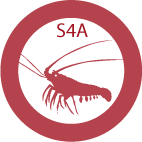




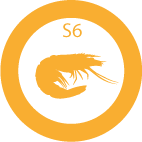 Please click on the colored SAP Strategy icon to obtain more information on the specific SAP Actions this initiative is contributing to1. Enhance the regional governance arrangements for the protection of the marine environment
Please click on the colored SAP Strategy icon to obtain more information on the specific SAP Actions this initiative is contributing to1. Enhance the regional governance arrangements for the protection of the marine environment
1.1. Establish and operationalise a formal agreement for coordinated action with Brazil1.2. Establish and strengthen regional institutional coordination and cooperation arrangements1.3. Evaluate expansion and strengthening of the mandate of organizations to effectively address issues relating to habitat degradation and pollution in the marine environment1.5. Establish and/or enhance the capacity of the regional,sub-regional and national governance arrangements for the involvement of civil society in the implementation of the EBM/EAF approach (IGOs,NGOs,CBOs,private sector...)1.6. Enhance the capacity within and among arrangements to undertake and mainstream lessons learned and findings from monitoring,science and research in regional, sub-regional and national decision-making1.7. Establish and/or enhance the capacity within and among arrangements to undertake and mainstream valuation of ecosystem goods and services in regional, sub-regional and national decision-making and policy development1.8. Establish and/or increase the capacity of (sub-)regional organizations and countries for integrating the management of terrestrial drainage basins with the management of the marine recipient basins and coastal development(CLME and NBSLME)1.10. Establish and/or enhance the data and information quality and collection and management capacity of the regional, sub-regional and nationalgovernance arrangements for the protection of the marine environment, including through the establishment of public-private partnerships1.11. Establish and/or enhance the capacity of the regional, sub –regional and national governance arrangements for the monitoring, assessment and reporting on the state of the marine environment2. Enhance the regional governance arrangements for sustainable fisheries
2.4. Establish and/or enhance the capacity of the regional, sub-regional and national governance arrangements for the broader involvement of society in the implementation of the EBM/EAF approach (IGOs, NGOs, CBOs, private sector...)2.7. Coordinate the development and implementation of regional, sub-regional and national initiatives for sustainable small scale fisheries (including capacity building and pilot initiatives)2.8. Coordinate the development and implementation of regional, sub-regional and national initiatives to improve welfare and livelihoods through the provision of Decent Work(including through the development of alternative livelihoods, capacity building and pilot initiatives)2.10. Establish and/or enhance the capacity to manage knowledge and to mainstream findings from monitoring, science and research in regional, sub-regional and national decision-making and policy development for sustainable fisheries2.11. Establish and/or enhance the capacity to undertake and mainstream valuation of ecosystem goods and services in regional, sub-regional and national decision-making and policy development for sustainable fisheries2.13. Establish and/or enhance the data and information quality and collection and management capacity of the regional, sub-regional and national fisheries governance arrangements, including through the establishment of public-private partnerships2.14. Establish and/or enhance the capacity of the regional, sub-regional and national fisheries governance arrangements for the monitoring, assessment & reporting on the state of fisheries3. Establish and operationalise a regional policy coordination mechanismfor ocean governance, with initial focus on shared Living Marine Resources
3.3. Adopt and operationalise the permanent regional policy coordination mechanism for shared Living Marine Resources (sLMR) governance3.4. Develop and adopt a regional policy for data and information harmonization and sharing3.5. Develop and coordinate integrated and sectoral research strategies in support of the implementation of broader ocean governance in the region, with a short and medium term focus on sLMR management3.6. Develop and coordinate integrated and sectoral sustainable financing strategies for the cost-effective implementation of broader ocean governance in the region, with a short and medium term focus on sLMR governance3.7. Facilitate the preparation of data and information products and the uptake of monitoring and research outputs by (sub)regional and national science-policy interfaces4. Enhance the governance arrangements for ecosystem-based management for reefs and associated ecosystems
4.1. Strengthen the formal cooperation between OSPESCA and CCAD for implementing the EBM/EAF approach4.2. Establish and/or enhance the cooperation between environmental, fisheries and other relevant agencies within CARICOM for implementing the EBM/EAF approach4.4. Coordinate and enhance (sub-)regional and national efforts for the conservation of the biodiversity of reef and associated habitats, including through the strengthening of networks of marine protected areas (MPAs), and initiatives for sustainable reef fisheries* such as programmes dealing with alien invasive species4.6. Establish and/or enhance the institutional structure and capacity of (sub-)regional and national arrangements for implementing management and conservation measures for reef ecosystems4.8. Operationalise and strengthen interlinked Decision Support Systems (DSSs) for the protection of reefs and associated ecosystems and for the sustainable management of associated living marine resources4A. Enhance the governance arrangementsfor implementing an ecosystem approach for spiny lobster fisheries
4A.2. Evaluate and expand, as applicable,the geographic scope of the governance arrangement operated by OSPESCA, taking into consideration both the perspectives of species range (ecosystem approach) and of common markets4A.3. Strengthen and achieve full implementation of policy cycles under the existing sub-regional governance arrangements for the management of the spiny lobster fisheries, including linkages with organizations working on the environmental protection of reefs and associated ecosystems4A.4. Operationalise and strengthen a DSS for the spiny lobster fisheries (including linkages to the DSS for the protection and sustainable management of reefs and associated living marine resources)4B. Enhance the governance arrangementsfor implementing an ecosystem approach for queen conch fisheries
4B.2. Develop and adopt a regional framework and management and conservation plan for the queen conch with regional-level harmonized regulations (including trade issues)4B.3. Develop, adopt and implement the sub-regional agreements for the management of the queen conch resource4B.4. Strengthen and achieve full implementation of policy cycles under the existing sub-regional governance arrangements for the management of queen conch fisheries, including linkages with organizations working on the environmental protection of reefs and associated ecosystems (EAF)4B.5. Operationalise and strengthen a DSS for the queen conch fisheries (including linkages to the DSS for the protection and sustainable management of reefs and associated living marine resources)5. Enhance the governance arrangements for implementing an ecosystem approach for pelagic fisheries
5A. Enhance the governance arrangements for implementing the ecosystem approach for flyingfish fisheries
5B. Enhance the governance arrangementsfor implementing an ecosystem approach for large pelagics fisheries
6. Implement EBM/EAF of the Guianas-Brazil continental shelf with special reference to the shrimp and groundfish fishery
6.5. Explore and establish the most appropriate mechanism for integrating the four sub regional arrangements6.6. Operationalise and further enhance an interlinked, sub-regional decision support systems (DSS) for sustainable fisheries and environmental protection in the Guianas-Brazil continental shelf6.7. Establish and/orthe capacity of sub-regional and national arrangements for implementing management and conservation measures6.10. Develop and implement initiatives for sustainably enhancing livelihoods by identifying and building capacity for diversification, viable alternative sources of Decent Work and/or improved incomes, and creating added value for current catches
Contributions to the 2030 UN Sustainable Development Agenda (SDG’s)
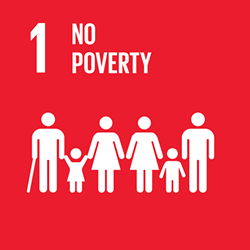
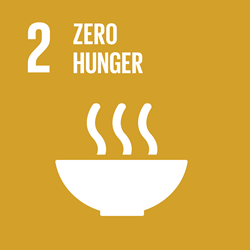
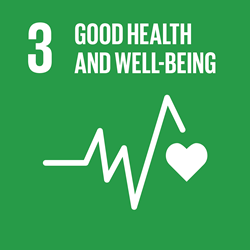

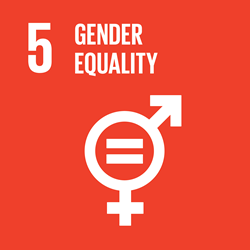
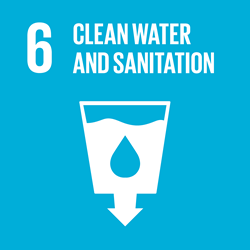

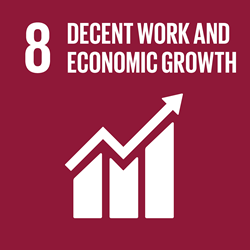
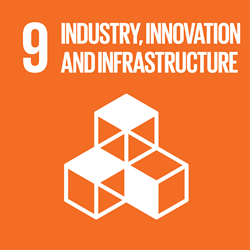
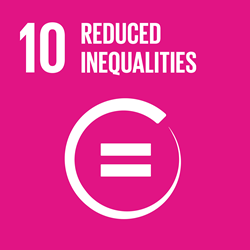

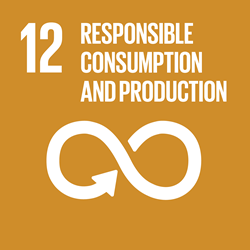
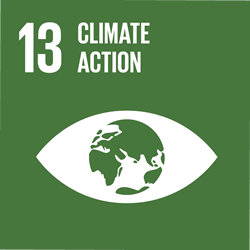


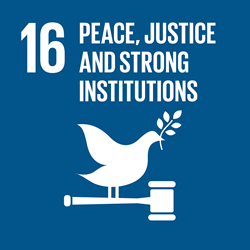
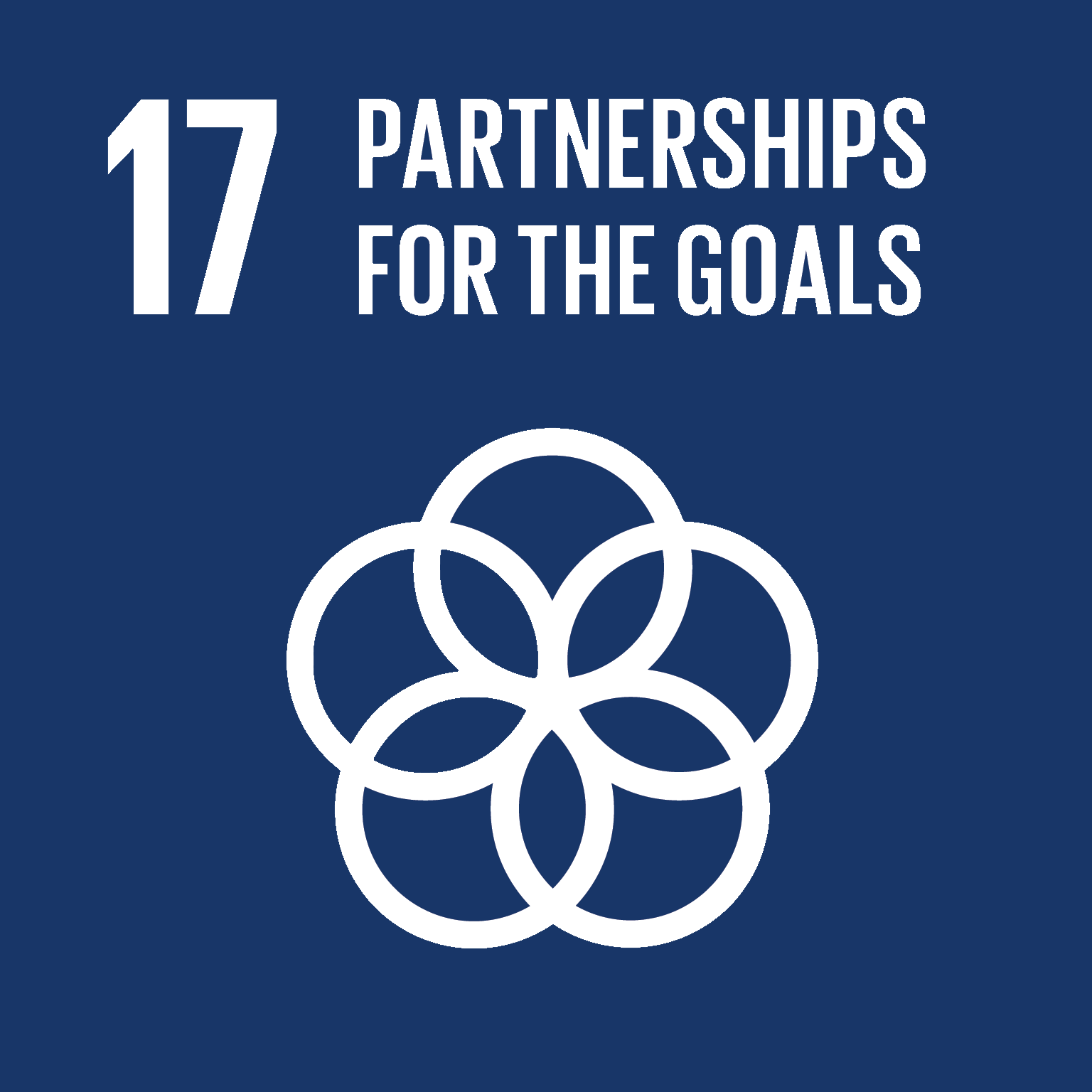
 Please click on the SDG14 colored icon to see to which specific SDG14 targets this initiative is contributing.1. End poverty in all its forms everywhere
Please click on the SDG14 colored icon to see to which specific SDG14 targets this initiative is contributing.1. End poverty in all its forms everywhere
1.1 By 2030, eradicate extreme poverty for all people everywhere, currently measured as people living on less than $1.25 a day2 End hunger, achieve food security and improved nutrition and promote sustainable agriculture
2.1 By 2030, end hunger and ensure access by all people, in particular the poor and people in vulnerable situations, including infants, to safe, nutritious and sufficient food all year round3 Ensure healthy lives and promote well-being for all at all ages
3.1 By 2030, reduce the global maternal mortality ratio to less than 70 per 100,000 live births4 Ensure inclusive and equitable quality education and promote lifelong learning opportunities for all
5 Achieve gender equality and empower all women and girls
5.1 End all forms of discrimination against all women and girls everywhere6 Ensure availability and sustainable management of water and sanitation for all
6.1 By 2030, achieve universal and equitable access to safe and affordable drinking water for all7 Ensure access to affordable, reliable, sustainable and modern energy for all
8 Promote sustained, inclusive and sustainable economic growth, full and productive employment and decent work for all
8.1 Sustain per capita economic growth in accordance with national circumstances and, in particular, at least 7 per cent gross domestic product growth per annum in the least developed countries9 Build resilient infrastructure, promote inclusive and sustainable industrialization and foster innovation
9.1 Develop quality, reliable, sustainable and resilient infrastructure, including regional and transborder infrastructure, to support economic development and human well-being, with a focus on affordable and equitable access for all10 Reduce inequality within and among countries
10.1 By 2030, progressively achieve and sustain income growth of the bottom 40 per cent of the population at a rate higher than the national average11 Make cities and human settlements inclusive, safe, resilient and sustainable
12 Ensure sustainable consumption and production patterns
12.1 Implement the 10-year framework of programmes on sustainable consumption and production, all countries taking action, with developed countries taking the lead, taking into account the development and capabilities of developing countries13 Take urgent action to combat climate change and its impacts
13.1 Strengthen resilience and adaptive capacity to climate-related hazards and natural disasters in all countries14 Conserve and sustainably use the oceans, seas and marine resources for sustainable development
14.1 By 2025, prevent and significantly reduce marine pollution of all kinds, in particular from land-based activities, including marine debris and nutrient pollution14.2 By 2020, sustainably manage and protect marine and coastal ecosystems to avoid significant adverse impacts, including by strengthening their resilience, and take action for their restoration in order to achieve healthy and productive oceans14.4 By 2020, effectively regulate harvesting and end overfishing, illegal, unreported and unregulated fishing and destructive fishing practices and implement science-based management plans, in order to restore fish stocks in the shortest time feasible, at least to levels that can produce maximum sustainable yield as determined by their biological characteristics14.5 By 2020, conserve at least 10 per cent of coastal and marine areas, consistent with national and international law and based on the best available scientific information14.7 By 2030, increase the economic benefits to Small Island developing States and least developed countries from the sustainable use of marine resources, including through sustainable management of fisheries, aquaculture and tourism14.a Increase scientific knowledge, develop research capacity and transfer marine technology, taking into account the Intergovernmental Oceanographic Commission Criteria and Guidelines on the Transfer of Marine Technology, in order to improve ocean health and to enhance the contribution of marine biodiversity to the development of developing countries, in particular small island developing States and least developed countries14.b Provide access for small-scale artisanal fishers to marine resources and markets14.c Enhance the conservation and sustainable use of oceans and their resources by implementing international law as reflected in UNCLOS, which provides the legal framework for the conservation and sustainable use of oceans and their resources, as recalled in paragraph 158 of The Future We Want15 Protect, restore and promote sustainable use of terrestrial ecosystems, sustainably manage forests, combat desertification, and halt and reverse land degradation and halt biodiversity loss
16 Promote peaceful and inclusive societies for sustainable development, provide access to justice for all and build effective, accountable and inclusive institutions at all levels
16.1 Significantly reduce all forms of violence and related death rates everywhere
Other Regional and Global Commitments
Regional Emerging Issues
MEAS III Capacity Building Related to Multilateral Environmental Agreements in ACP Countries – Phase III
Capacity Building Related to Multilateral Environmental Agreements in ACP Countries – Phase IIIBrief Description:To enhance the mainstreaming and implementation of MEAs related to biodiversity and chemicals and waste, with a focus on the mainstreaming of biodiversity in agriculture, the management of chemicals and waste (including hazardous pesticides), the reinforcement of compliance and enforcement measures and the strengthening of the implementation of regional seas conventions in ACP countries.Mejorar la integración e implementación de los MEA relacionados con la diversidad biológica y los productos químicos y los desechos, con un enfoque en la integración de la diversidad biológica en la agricultura, la gestión de productos químicos y desechos (incluidos los plaguicidas peligrosos), el refuerzo de las medidas de cumplimiento y aplicación y el fortalecimiento de la aplicación de los convenios sobre mares regionales en los países ACP.Lead Organization: UNEP-CEPDonor: EUProject ID:Geographic Scope: Multicountry (regional)Project Status: OngoingLast Update: 29/10/2020
Start Date: 2020-04-01
End Date: 2024-09-01
Official Project Document: ACP_MEAs-3.pdfProject Profile Manager: Christopher Corbin
Contact Email: christopher.corbin@un.org
Contact Phone:Partners:Grant (USD): $2,350,000.00Total co-financing (USD): $0.00(Co) financing not originating from GEF:Participating Country(s):Belize
Guyana
Suriname
Bahamas
Barbados
Cuba
Dominica
Dominican Republic
Grenada
Haiti
Jamaica
Saint Lucia
Trinidad and Tobago
Antigua and Barbuda
Saint Kitts and Nevis
Saint Vincent and the Grenadines
Contributions to the 10-year CLME+ Strategic Action Programme (2015-2025)



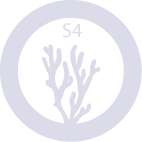





 Please click on the colored SAP Strategy icon to obtain more information on the specific SAP Actions this initiative is contributing to1. Enhance the regional governance arrangements for the protection of the marine environment
Please click on the colored SAP Strategy icon to obtain more information on the specific SAP Actions this initiative is contributing to1. Enhance the regional governance arrangements for the protection of the marine environment
1.4. Enhance the compliance and enforcement capacity of the regional, sub-regional and national governance arrangements1.5. Establish and/or enhance the capacity of the regional,sub-regional and national governance arrangements for the involvement of civil society in the implementation of the EBM/EAF approach (IGOs,NGOs,CBOs,private sector...)1.9. Strengthen the capacity of the regional and sub-regional arrangements to support countries in becoming parties to relevant international and regional agreements and complying with their global and regional commitments towards the conservation of the marine environment (including the support to update and harmonize national legislation and regulations)2. Enhance the regional governance arrangements for sustainable fisheries
3. Establish and operationalise a regional policy coordination mechanismfor ocean governance, with initial focus on shared Living Marine Resources
4. Enhance the governance arrangements for ecosystem-based management for reefs and associated ecosystems
4A. Enhance the governance arrangementsfor implementing an ecosystem approach for spiny lobster fisheries
4B. Enhance the governance arrangementsfor implementing an ecosystem approach for queen conch fisheries
5. Enhance the governance arrangements for implementing an ecosystem approach for pelagic fisheries
5A. Enhance the governance arrangements for implementing the ecosystem approach for flyingfish fisheries
5B. Enhance the governance arrangementsfor implementing an ecosystem approach for large pelagics fisheries
6. Implement EBM/EAF of the Guianas-Brazil continental shelf with special reference to the shrimp and groundfish fishery
Contributions to the 2030 UN Sustainable Development Agenda (SDG’s)














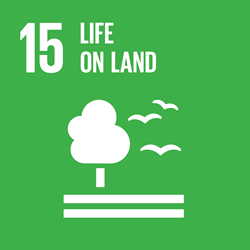


 Please click on the SDG14 colored icon to see to which specific SDG14 targets this initiative is contributing.1. End poverty in all its forms everywhere
Please click on the SDG14 colored icon to see to which specific SDG14 targets this initiative is contributing.1. End poverty in all its forms everywhere
1.1 By 2030, eradicate extreme poverty for all people everywhere, currently measured as people living on less than $1.25 a day2 End hunger, achieve food security and improved nutrition and promote sustainable agriculture
2.1 By 2030, end hunger and ensure access by all people, in particular the poor and people in vulnerable situations, including infants, to safe, nutritious and sufficient food all year round3 Ensure healthy lives and promote well-being for all at all ages
3.1 By 2030, reduce the global maternal mortality ratio to less than 70 per 100,000 live births4 Ensure inclusive and equitable quality education and promote lifelong learning opportunities for all
5 Achieve gender equality and empower all women and girls
6 Ensure availability and sustainable management of water and sanitation for all
6.1 By 2030, achieve universal and equitable access to safe and affordable drinking water for all7 Ensure access to affordable, reliable, sustainable and modern energy for all
8 Promote sustained, inclusive and sustainable economic growth, full and productive employment and decent work for all
9 Build resilient infrastructure, promote inclusive and sustainable industrialization and foster innovation
10 Reduce inequality within and among countries
11 Make cities and human settlements inclusive, safe, resilient and sustainable
12 Ensure sustainable consumption and production patterns
12.1 Implement the 10-year framework of programmes on sustainable consumption and production, all countries taking action, with developed countries taking the lead, taking into account the development and capabilities of developing countries13 Take urgent action to combat climate change and its impacts
13.1 Strengthen resilience and adaptive capacity to climate-related hazards and natural disasters in all countries14 Conserve and sustainably use the oceans, seas and marine resources for sustainable development
14.1 By 2025, prevent and significantly reduce marine pollution of all kinds, in particular from land-based activities, including marine debris and nutrient pollution14.2 By 2020, sustainably manage and protect marine and coastal ecosystems to avoid significant adverse impacts, including by strengthening their resilience, and take action for their restoration in order to achieve healthy and productive oceans14.5 By 2020, conserve at least 10 per cent of coastal and marine areas, consistent with national and international law and based on the best available scientific information14.c Enhance the conservation and sustainable use of oceans and their resources by implementing international law as reflected in UNCLOS, which provides the legal framework for the conservation and sustainable use of oceans and their resources, as recalled in paragraph 158 of The Future We Want15 Protect, restore and promote sustainable use of terrestrial ecosystems, sustainably manage forests, combat desertification, and halt and reverse land degradation and halt biodiversity loss
15.1 By 2020, ensure the conservation, restoration and sustainable use of terrestrial and inland freshwater ecosystems and their services, in particular forests, wetlands, mountains and drylands, in line with obligations under international agreements16 Promote peaceful and inclusive societies for sustainable development, provide access to justice for all and build effective, accountable and inclusive institutions at all levels
16.1 Significantly reduce all forms of violence and related death rates everywhere
Other Regional and Global Commitments
Regional Emerging Issues
MEAS II Caribbean Hub sub-component - Capacity Building related to Multilateral Environmental Agreements (MEA) in African, Caribbean and Pacific (ACP) Countries
Subcomponente del Centro del Caribe: Creación de capacidad relacionada con los acuerdos ambientales multilaterales (MEA) en países de África, el Caribe y el Pacífico (ACP)Brief Description:This Project forms the Caribbean Hub sub-component of the European Commission funded Capacity Building related to Multilateral Environmental Agreements (MEAs) in the African, Caribbean and Pacific (ACP) countries. The overall objective of the Project is to strengthen and enhance the endogenous capacity of Caribbean ACP countries to effectively implement and comply with MEAs and related commitments thereby resulting in sound management of the environment and natural resources. This will facilitate Caribbean countries to address development challenges associated with the adverse effects of climate change, loss of biodiversity, drought, land degradation, waste management and other threats to the environment. The Project will focus on building and strengthening capacities for compliance with, and implementation and enforcement of MEAs. Training and knowledge in multilateral environmental negotiation and diplomacy will be provided to facilitate effective participation at international environmental negotiations. In addition to the lack of negotiating skills, a further constraint is the lack of relevant information available to delegates prior to meetings on issues to be negotiated. A mechanism of briefing Caribbean negotiators before major environmental negotiations will therefore be established. Moreover, the CARICOM Secretariat as the regional hub for the Caribbean will play a crucial role in building a regional consensus on negotiation positions on MEA negotiations.Este proyecto forma el subcomponente Caribbean Hub del desarrollo de capacidades financiado por la Comisión Europea relacionado con los acuerdos ambientales multilaterales (MEA) en los países de África, el Caribe y el Pacífico (ACP). El objetivo general es fortalecer y mejorar la capacidad de los países ACP del Caribe para implementar y cumplir de manera efectiva los MEA y los compromisos relacionados, lo que resultará en una gestión sólida del medio ambiente y los recursos naturales. Esto facilitará que los países del Caribe aborden los desafíos de desarrollo asociados con los efectos adversos del cambio climático, la pérdida de biodiversidad, la sequía, la degradación de la tierra, la gestión de desechos y otras amenazas al medio ambiente. El proyecto se centrará en la creación y el fortalecimiento de las capacidades para el cumplimiento, la implementación y el cumplimiento de los MEA. Se proporcionará capacitación y conocimientos en negociación ambiental multilateral y diplomacia para facilitar la participación efectiva en las negociaciones ambientales internacionales. Además de la falta de habilidades de negociación, una limitación adicional es la falta de información relevante disponible para los delegados antes de las reuniones sobre los temas que se negociarán. Por lo tanto, se establecerá un mecanismo para informar a los negociadores caribeños antes de las principales negociaciones ambientales. Además, la Secretaría de CARICOM, como centro regional para el Caribe, desempeñará un papel crucial en la construcción de un consenso regional sobre las posiciones de negociación sobre las negociaciones de los MEA.Lead Organization: UNEP-CEPDonor: EUProject ID: 2009-CPL-2262-2661-3771Geographic Scope: Multicountry (regional)Project Status: CompletedLast Update: 28/10/2020
Start Date: 2009-03-01
End Date: 2013-02-28
Official Project Document: MEAS-2-Caricom-project_document-2.pdfProject Profile Manager: Christopher Corbin
Contact Email: christopher.corbin@un.org
Contact Phone:Partners: CARICOMP, OECS, CCCC, CEHIGrant (USD): $1,410,407.00Total co-financing (USD): $153,272.00(Co) financing not originating from GEF:Participating Country(s):Belize
Guyana
Suriname
Bahamas
Barbados
Cuba
Dominica
Dominican Republic
Grenada
Haiti
Jamaica
Saint Lucia
Trinidad and Tobago
Antigua and Barbuda
Saint Kitts and Nevis
Saint Vincent and the Grenadines
Contributions to the 10-year CLME+ Strategic Action Programme (2015-2025)









 Please click on the colored SAP Strategy icon to obtain more information on the specific SAP Actions this initiative is contributing to1. Enhance the regional governance arrangements for the protection of the marine environment
Please click on the colored SAP Strategy icon to obtain more information on the specific SAP Actions this initiative is contributing to1. Enhance the regional governance arrangements for the protection of the marine environment
1.2. Establish and strengthen regional institutional coordination and cooperation arrangements1.4. Enhance the compliance and enforcement capacity of the regional, sub-regional and national governance arrangements1.6. Enhance the capacity within and among arrangements to undertake and mainstream lessons learned and findings from monitoring,science and research in regional, sub-regional and national decision-making1.10. Establish and/or enhance the data and information quality and collection and management capacity of the regional, sub-regional and nationalgovernance arrangements for the protection of the marine environment, including through the establishment of public-private partnerships1.11. Establish and/or enhance the capacity of the regional, sub –regional and national governance arrangements for the monitoring, assessment and reporting on the state of the marine environment2. Enhance the regional governance arrangements for sustainable fisheries
2.4. Establish and/or enhance the capacity of the regional, sub-regional and national governance arrangements for the broader involvement of society in the implementation of the EBM/EAF approach (IGOs, NGOs, CBOs, private sector...)2.10. Establish and/or enhance the capacity to manage knowledge and to mainstream findings from monitoring, science and research in regional, sub-regional and national decision-making and policy development for sustainable fisheries3. Establish and operationalise a regional policy coordination mechanismfor ocean governance, with initial focus on shared Living Marine Resources
3.4. Develop and adopt a regional policy for data and information harmonization and sharing3.7. Facilitate the preparation of data and information products and the uptake of monitoring and research outputs by (sub)regional and national science-policy interfaces4. Enhance the governance arrangements for ecosystem-based management for reefs and associated ecosystems
4.4. Coordinate and enhance (sub-)regional and national efforts for the conservation of the biodiversity of reef and associated habitats, including through the strengthening of networks of marine protected areas (MPAs), and initiatives for sustainable reef fisheries* such as programmes dealing with alien invasive species4.7. Strengthen the capacity of Regional Fisheries Bodies to engage and build capacity among member States to implement the EBM/EAF approach, through National Action Plans (NAPs), data/information management and analysis, and operationalisation of national intersectoral coordination and consultation mechanisms that include science-policy interfaces4A. Enhance the governance arrangementsfor implementing an ecosystem approach for spiny lobster fisheries
4B. Enhance the governance arrangementsfor implementing an ecosystem approach for queen conch fisheries
5. Enhance the governance arrangements for implementing an ecosystem approach for pelagic fisheries
5A. Enhance the governance arrangements for implementing the ecosystem approach for flyingfish fisheries
5B. Enhance the governance arrangementsfor implementing an ecosystem approach for large pelagics fisheries
6. Implement EBM/EAF of the Guianas-Brazil continental shelf with special reference to the shrimp and groundfish fishery
Contributions to the 2030 UN Sustainable Development Agenda (SDG’s)

















 Please click on the SDG14 colored icon to see to which specific SDG14 targets this initiative is contributing.1. End poverty in all its forms everywhere
Please click on the SDG14 colored icon to see to which specific SDG14 targets this initiative is contributing.1. End poverty in all its forms everywhere
2 End hunger, achieve food security and improved nutrition and promote sustainable agriculture
3 Ensure healthy lives and promote well-being for all at all ages
4 Ensure inclusive and equitable quality education and promote lifelong learning opportunities for all
5 Achieve gender equality and empower all women and girls
6 Ensure availability and sustainable management of water and sanitation for all
7 Ensure access to affordable, reliable, sustainable and modern energy for all
8 Promote sustained, inclusive and sustainable economic growth, full and productive employment and decent work for all
9 Build resilient infrastructure, promote inclusive and sustainable industrialization and foster innovation
10 Reduce inequality within and among countries
11 Make cities and human settlements inclusive, safe, resilient and sustainable
12 Ensure sustainable consumption and production patterns
13 Take urgent action to combat climate change and its impacts
14 Conserve and sustainably use the oceans, seas and marine resources for sustainable development
14.2 By 2020, sustainably manage and protect marine and coastal ecosystems to avoid significant adverse impacts, including by strengthening their resilience, and take action for their restoration in order to achieve healthy and productive oceans14.a Increase scientific knowledge, develop research capacity and transfer marine technology, taking into account the Intergovernmental Oceanographic Commission Criteria and Guidelines on the Transfer of Marine Technology, in order to improve ocean health and to enhance the contribution of marine biodiversity to the development of developing countries, in particular small island developing States and least developed countries14.c Enhance the conservation and sustainable use of oceans and their resources by implementing international law as reflected in UNCLOS, which provides the legal framework for the conservation and sustainable use of oceans and their resources, as recalled in paragraph 158 of The Future We Want15 Protect, restore and promote sustainable use of terrestrial ecosystems, sustainably manage forests, combat desertification, and halt and reverse land degradation and halt biodiversity loss
16 Promote peaceful and inclusive societies for sustainable development, provide access to justice for all and build effective, accountable and inclusive institutions at all levels
Other Regional and Global Commitments
Regional Emerging Issues
IWECO Integrating Water, Land and Ecosystem Management in Caribbean Small Island Developing States
Integración de la gestión del agua, la tierra y los ecosistemas en el desarrollo de los pequeños Estados insulares del CaribeBrief Description:The objective of the project is to contribute to the preservation of Caribbean ecosystems that are of global significance and the sustainability of livelihoods through the application of existing proven technologies and approaches that are appropriate for SIDS.El objetivo del proyecto es contribuir a la preservación de los ecosistemas del Caribe que son de importancia mundial y la sostenibilidad de los medios de vida mediante la aplicación de tecnologías y enfoques comprobados existentes que son apropiados para el desarrollo de los Estados Insulares.Lead Organization: UNEP-CEP, UNDPDonor: GEFProject ID: 4932Geographic Scope: Multicountry (regional)Project Status: OngoingLast Update: 28/10/2020
Start Date: 2016-10-16
End Date: 2021-06-30Project Profile Manager: Jan Betlem
Contact Email: jan.betlem@un.org
Contact Phone:Partners: CEHI, UNEP CEPGrant (USD): $20,722,571.00Total co-financing (USD): $0.00(Co) financing not originating from GEF:Participating Country(s):Bahamas
Barbados
Cuba
Dominican Republic
Grenada
Jamaica
Saint Lucia
Trinidad and Tobago
Antigua and Barbuda
Saint Kitts and Nevis
Saint Vincent and the Grenadines
Contributions to the 10-year CLME+ Strategic Action Programme (2015-2025)









 Please click on the colored SAP Strategy icon to obtain more information on the specific SAP Actions this initiative is contributing to1. Enhance the regional governance arrangements for the protection of the marine environment
Please click on the colored SAP Strategy icon to obtain more information on the specific SAP Actions this initiative is contributing to1. Enhance the regional governance arrangements for the protection of the marine environment
1.5. Establish and/or enhance the capacity of the regional,sub-regional and national governance arrangements for the involvement of civil society in the implementation of the EBM/EAF approach (IGOs,NGOs,CBOs,private sector...)1.6. Enhance the capacity within and among arrangements to undertake and mainstream lessons learned and findings from monitoring,science and research in regional, sub-regional and national decision-making1.9. Strengthen the capacity of the regional and sub-regional arrangements to support countries in becoming parties to relevant international and regional agreements and complying with their global and regional commitments towards the conservation of the marine environment (including the support to update and harmonize national legislation and regulations)1.11. Establish and/or enhance the capacity of the regional, sub –regional and national governance arrangements for the monitoring, assessment and reporting on the state of the marine environment2. Enhance the regional governance arrangements for sustainable fisheries
3. Establish and operationalise a regional policy coordination mechanismfor ocean governance, with initial focus on shared Living Marine Resources
4. Enhance the governance arrangements for ecosystem-based management for reefs and associated ecosystems
4A. Enhance the governance arrangementsfor implementing an ecosystem approach for spiny lobster fisheries
4B. Enhance the governance arrangementsfor implementing an ecosystem approach for queen conch fisheries
5. Enhance the governance arrangements for implementing an ecosystem approach for pelagic fisheries
5A. Enhance the governance arrangements for implementing the ecosystem approach for flyingfish fisheries
5B. Enhance the governance arrangementsfor implementing an ecosystem approach for large pelagics fisheries
6. Implement EBM/EAF of the Guianas-Brazil continental shelf with special reference to the shrimp and groundfish fishery
Contributions to the 2030 UN Sustainable Development Agenda (SDG’s)

















 Please click on the SDG14 colored icon to see to which specific SDG14 targets this initiative is contributing.1. End poverty in all its forms everywhere
Please click on the SDG14 colored icon to see to which specific SDG14 targets this initiative is contributing.1. End poverty in all its forms everywhere
2 End hunger, achieve food security and improved nutrition and promote sustainable agriculture
3 Ensure healthy lives and promote well-being for all at all ages
4 Ensure inclusive and equitable quality education and promote lifelong learning opportunities for all
5 Achieve gender equality and empower all women and girls
6 Ensure availability and sustainable management of water and sanitation for all
7 Ensure access to affordable, reliable, sustainable and modern energy for all
8 Promote sustained, inclusive and sustainable economic growth, full and productive employment and decent work for all
9 Build resilient infrastructure, promote inclusive and sustainable industrialization and foster innovation
10 Reduce inequality within and among countries
11 Make cities and human settlements inclusive, safe, resilient and sustainable
12 Ensure sustainable consumption and production patterns
13 Take urgent action to combat climate change and its impacts
14 Conserve and sustainably use the oceans, seas and marine resources for sustainable development
14.2 By 2020, sustainably manage and protect marine and coastal ecosystems to avoid significant adverse impacts, including by strengthening their resilience, and take action for their restoration in order to achieve healthy and productive oceans14.7 By 2030, increase the economic benefits to Small Island developing States and least developed countries from the sustainable use of marine resources, including through sustainable management of fisheries, aquaculture and tourism14.a Increase scientific knowledge, develop research capacity and transfer marine technology, taking into account the Intergovernmental Oceanographic Commission Criteria and Guidelines on the Transfer of Marine Technology, in order to improve ocean health and to enhance the contribution of marine biodiversity to the development of developing countries, in particular small island developing States and least developed countries15 Protect, restore and promote sustainable use of terrestrial ecosystems, sustainably manage forests, combat desertification, and halt and reverse land degradation and halt biodiversity loss
16 Promote peaceful and inclusive societies for sustainable development, provide access to justice for all and build effective, accountable and inclusive institutions at all levels
Other Regional and Global Commitments
Regional Emerging Issues
MarGov Marine Resource Governance in the Eastern Caribbean
Gobernanza de los Recursos Marinos en el Caribe OrientalBrief Description:To understand marine resource governance related to small-scale fisheries and coastal management in the eastern Caribbean using complex adaptive system (CAS) and social-ecological system (SES) concepts.Comprender la gobernanza de los recursos marinos relacionada con la pesca a pequeña escala y el manejo costero en el Caribe oriental utilizando conceptos de sistema adaptativo complejo y sistema socioecológico.Lead Organization: CANARIDonor: International Development Research Centre (IDRC) – Rural Poverty and Environment Program - CanadaProject ID: 103946Geographic Scope: Multicountry (regional)Project Status: CompletedLast Update: 28/10/2020
Start Date: 2007-03-01
End Date: 2012-02-29
Official Project Document: IDL-50306.pdfProject Profile Manager: Patrick McConney
Contact Email: patrick.mcconney@gmail.com
Contact Phone:Partners: CANARI, Grenada FA), Sustainable Grenadines Project, Caribbean Network of Fisherfolk Organisations, Department of Fisheries, St. Lucia, Department of Marine Resources, St. Kitts and NevisGrant (USD): $424,000.00Total co-financing (USD):(Co) financing not originating from GEF:Participating Country(s):Grenada
Saint Lucia
Saint Kitts and Nevis
Saint Vincent and the Grenadines
Contributions to the 10-year CLME+ Strategic Action Programme (2015-2025)
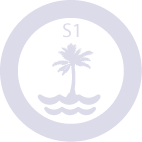








 Please click on the colored SAP Strategy icon to obtain more information on the specific SAP Actions this initiative is contributing to1. Enhance the regional governance arrangements for the protection of the marine environment
Please click on the colored SAP Strategy icon to obtain more information on the specific SAP Actions this initiative is contributing to1. Enhance the regional governance arrangements for the protection of the marine environment
2. Enhance the regional governance arrangements for sustainable fisheries
3. Establish and operationalise a regional policy coordination mechanismfor ocean governance, with initial focus on shared Living Marine Resources
4. Enhance the governance arrangements for ecosystem-based management for reefs and associated ecosystems
4A. Enhance the governance arrangementsfor implementing an ecosystem approach for spiny lobster fisheries
4B. Enhance the governance arrangementsfor implementing an ecosystem approach for queen conch fisheries
5. Enhance the governance arrangements for implementing an ecosystem approach for pelagic fisheries
5A. Enhance the governance arrangements for implementing the ecosystem approach for flyingfish fisheries
5B. Enhance the governance arrangementsfor implementing an ecosystem approach for large pelagics fisheries
6. Implement EBM/EAF of the Guianas-Brazil continental shelf with special reference to the shrimp and groundfish fishery
Contributions to the 2030 UN Sustainable Development Agenda (SDG’s)













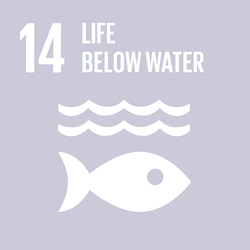



 Please click on the SDG14 colored icon to see to which specific SDG14 targets this initiative is contributing.1. End poverty in all its forms everywhere
Please click on the SDG14 colored icon to see to which specific SDG14 targets this initiative is contributing.1. End poverty in all its forms everywhere
2 End hunger, achieve food security and improved nutrition and promote sustainable agriculture
3 Ensure healthy lives and promote well-being for all at all ages
4 Ensure inclusive and equitable quality education and promote lifelong learning opportunities for all
5 Achieve gender equality and empower all women and girls
6 Ensure availability and sustainable management of water and sanitation for all
7 Ensure access to affordable, reliable, sustainable and modern energy for all
8 Promote sustained, inclusive and sustainable economic growth, full and productive employment and decent work for all
9 Build resilient infrastructure, promote inclusive and sustainable industrialization and foster innovation
10 Reduce inequality within and among countries
11 Make cities and human settlements inclusive, safe, resilient and sustainable
12 Ensure sustainable consumption and production patterns
13 Take urgent action to combat climate change and its impacts
14 Conserve and sustainably use the oceans, seas and marine resources for sustainable development
15 Protect, restore and promote sustainable use of terrestrial ecosystems, sustainably manage forests, combat desertification, and halt and reverse land degradation and halt biodiversity loss
16 Promote peaceful and inclusive societies for sustainable development, provide access to justice for all and build effective, accountable and inclusive institutions at all levels
Other Regional and Global Commitments
Regional Emerging Issues
Building the Capacity of Civil Society to Shape Public Policy Reform in the Caribbean to Protect Biodiversity and Ecosystem Services
Fortalecimiento de la capacidad de la sociedad civil para dar forma a la reforma de las políticas públicas en el Caribe para proteger la biodiversidad y los servicios de los ecosistemasBrief Description:Support the mainstreaming of biodiversity conservation into development decision making through several activities: assessments of the effectiveness of the policy frameworks for public participation, strategy development to strengthen environmental impact assessment (EIA) regulations, capacity building for local civil society, development of an online platform for public engagement in development decision making, and national and regional networking. This grant focuses on Jamaica, although select activities will be implemented in the Dominican Republic and Haiti.Apoyo la integración de la conservación de la biodiversidad en la toma de decisiones de desarrollo a través de varias actividades: evaluaciones de la efectividad de los marcos de políticas para la participación pública, desarrollo de estrategias para fortalecer las regulaciones de evaluación de impacto ambiental (EIA), desarrollo de capacidades para la sociedad civil local, desarrollo de una plataforma en línea para la participación pública en la toma de decisiones sobre el desarrollo y la creación de redes nacionales y regionales. Esta subvención se enfoca en Jamaica, aunque algunas actividades se implementarán en República Dominicana y Haití.Lead Organization: World Resources InstituteDonor: CEPFProject ID: 62334Geographic Scope: Multicountry (regional)Project Status: CompletedLast Update: 26/10/2020
Start Date: 2013-04-01
End Date: 2015-09-01
Official Project Document: Biodiversity-mainstreaming-final-report-World-Inst.pdfProject Profile Manager: Carole Excell
Contact Email: cexcell@wri.org
Contact Phone:Partners: Jamaica Environment Trust, Windsor Research Centre, C-CAM, North Cockpit Country Local Forest management Council, INSAPROMA. ADHENGrant (USD): $254,843.00Total co-financing (USD): $0.00(Co) financing not originating from GEF:Participating Country(s):Dominican Republic
Haiti
Jamaica
Contributions to the 10-year CLME+ Strategic Action Programme (2015-2025)









 Please click on the colored SAP Strategy icon to obtain more information on the specific SAP Actions this initiative is contributing to1. Enhance the regional governance arrangements for the protection of the marine environment
Please click on the colored SAP Strategy icon to obtain more information on the specific SAP Actions this initiative is contributing to1. Enhance the regional governance arrangements for the protection of the marine environment
1.5. Establish and/or enhance the capacity of the regional,sub-regional and national governance arrangements for the involvement of civil society in the implementation of the EBM/EAF approach (IGOs,NGOs,CBOs,private sector...)1.6. Enhance the capacity within and among arrangements to undertake and mainstream lessons learned and findings from monitoring,science and research in regional, sub-regional and national decision-making1.10. Establish and/or enhance the data and information quality and collection and management capacity of the regional, sub-regional and nationalgovernance arrangements for the protection of the marine environment, including through the establishment of public-private partnerships2. Enhance the regional governance arrangements for sustainable fisheries
3. Establish and operationalise a regional policy coordination mechanismfor ocean governance, with initial focus on shared Living Marine Resources
3.4. Develop and adopt a regional policy for data and information harmonization and sharing3.7. Facilitate the preparation of data and information products and the uptake of monitoring and research outputs by (sub)regional and national science-policy interfaces4. Enhance the governance arrangements for ecosystem-based management for reefs and associated ecosystems
4.7. Strengthen the capacity of Regional Fisheries Bodies to engage and build capacity among member States to implement the EBM/EAF approach, through National Action Plans (NAPs), data/information management and analysis, and operationalisation of national intersectoral coordination and consultation mechanisms that include science-policy interfaces4A. Enhance the governance arrangementsfor implementing an ecosystem approach for spiny lobster fisheries
4B. Enhance the governance arrangementsfor implementing an ecosystem approach for queen conch fisheries
5. Enhance the governance arrangements for implementing an ecosystem approach for pelagic fisheries
5A. Enhance the governance arrangements for implementing the ecosystem approach for flyingfish fisheries
5B. Enhance the governance arrangementsfor implementing an ecosystem approach for large pelagics fisheries
6. Implement EBM/EAF of the Guianas-Brazil continental shelf with special reference to the shrimp and groundfish fishery
Contributions to the 2030 UN Sustainable Development Agenda (SDG’s)

















 Please click on the SDG14 colored icon to see to which specific SDG14 targets this initiative is contributing.1. End poverty in all its forms everywhere
Please click on the SDG14 colored icon to see to which specific SDG14 targets this initiative is contributing.1. End poverty in all its forms everywhere
2 End hunger, achieve food security and improved nutrition and promote sustainable agriculture
3 Ensure healthy lives and promote well-being for all at all ages
4 Ensure inclusive and equitable quality education and promote lifelong learning opportunities for all
5 Achieve gender equality and empower all women and girls
6 Ensure availability and sustainable management of water and sanitation for all
7 Ensure access to affordable, reliable, sustainable and modern energy for all
8 Promote sustained, inclusive and sustainable economic growth, full and productive employment and decent work for all
9 Build resilient infrastructure, promote inclusive and sustainable industrialization and foster innovation
10 Reduce inequality within and among countries
11 Make cities and human settlements inclusive, safe, resilient and sustainable
12 Ensure sustainable consumption and production patterns
13 Take urgent action to combat climate change and its impacts
14 Conserve and sustainably use the oceans, seas and marine resources for sustainable development
14.2 By 2020, sustainably manage and protect marine and coastal ecosystems to avoid significant adverse impacts, including by strengthening their resilience, and take action for their restoration in order to achieve healthy and productive oceans14.5 By 2020, conserve at least 10 per cent of coastal and marine areas, consistent with national and international law and based on the best available scientific information14.c Enhance the conservation and sustainable use of oceans and their resources by implementing international law as reflected in UNCLOS, which provides the legal framework for the conservation and sustainable use of oceans and their resources, as recalled in paragraph 158 of The Future We Want15 Protect, restore and promote sustainable use of terrestrial ecosystems, sustainably manage forests, combat desertification, and halt and reverse land degradation and halt biodiversity loss
16 Promote peaceful and inclusive societies for sustainable development, provide access to justice for all and build effective, accountable and inclusive institutions at all levels
Other Regional and Global Commitments
Regional Emerging Issues
CEPF Regional Implementation Team in the Caribbean Islands
Equipo de implementación regional del CEPF en las islas del CaribeBrief Description:The roject is aimed to provide strategic leadership and local knowledge to build a broad constituency of civil society groups working across institutional and geographic boundaries toward achieving the conservation goals described in the ecosystem profile for the Caribbean Island Hotspot. Major functions include assisting civil society groups in designing, implementing, and replicating successful conservation activities; building synergies with grantees and stakeholders; conducting outreach; assisting grant application preparation and review; and awarding small grants.El proyecto busca proporcionar liderazgo estratégico y conocimiento local para construir una amplia base de grupos de la sociedad civil que trabajen a través de fronteras institucionales y geográficas para lograr las metas de conservación descritas en el perfil del ecosistema para el Hotspot de la Isla del Caribe. Las funciones principales incluyen ayudar a los grupos de la sociedad civil a diseñar, implementar y reproducir actividades de conservación exitosas; crear sinergias con los beneficiarios y las partes interesadas; realizar actividades de divulgación; ayudar en la preparación y revisión de la solicitud de subvención; y concesión de pequeñas subvenciones.Lead Organization: CANARIDonor: CEPFProject ID: 57519Geographic Scope: Multicountry (regional)Project Status: CompletedLast Update: 26/10/2020
Start Date: 2010-10-01
End Date: 2016-07-30
Official Project Document: CANARI-final-report-57519.pdfWebsite:https://www.cepf.net/grants/grantee-projects/cepf-regional-implementation-team-caribbean-islandsProject Profile Manager: Anna Cadiz-Hadeed
Contact Email: anna@canari.org
Contact Phone:Partners: UNDP, IUCN Biopama, BHP Billinton Trinidad & Tobago, MacArthur FoundationGrant (USD): $1,021,428.00Total co-financing (USD): $895,863.00(Co) financing not originating from GEF:Participating Country(s):Bahamas
Barbados
Dominica
Dominican Republic
Grenada
Haiti
Jamaica
Saint Lucia
Antigua and Barbuda
Saint Kitts and Nevis
Saint Vincent and the Grenadines
Contributions to the 10-year CLME+ Strategic Action Programme (2015-2025)









 Please click on the colored SAP Strategy icon to obtain more information on the specific SAP Actions this initiative is contributing to1. Enhance the regional governance arrangements for the protection of the marine environment
Please click on the colored SAP Strategy icon to obtain more information on the specific SAP Actions this initiative is contributing to1. Enhance the regional governance arrangements for the protection of the marine environment
1.5. Establish and/or enhance the capacity of the regional,sub-regional and national governance arrangements for the involvement of civil society in the implementation of the EBM/EAF approach (IGOs,NGOs,CBOs,private sector...)1.10. Establish and/or enhance the data and information quality and collection and management capacity of the regional, sub-regional and nationalgovernance arrangements for the protection of the marine environment, including through the establishment of public-private partnerships2. Enhance the regional governance arrangements for sustainable fisheries
3. Establish and operationalise a regional policy coordination mechanismfor ocean governance, with initial focus on shared Living Marine Resources
4. Enhance the governance arrangements for ecosystem-based management for reefs and associated ecosystems
4.4. Coordinate and enhance (sub-)regional and national efforts for the conservation of the biodiversity of reef and associated habitats, including through the strengthening of networks of marine protected areas (MPAs), and initiatives for sustainable reef fisheries* such as programmes dealing with alien invasive species4A. Enhance the governance arrangementsfor implementing an ecosystem approach for spiny lobster fisheries
4B. Enhance the governance arrangementsfor implementing an ecosystem approach for queen conch fisheries
5. Enhance the governance arrangements for implementing an ecosystem approach for pelagic fisheries
5A. Enhance the governance arrangements for implementing the ecosystem approach for flyingfish fisheries
5B. Enhance the governance arrangementsfor implementing an ecosystem approach for large pelagics fisheries
6. Implement EBM/EAF of the Guianas-Brazil continental shelf with special reference to the shrimp and groundfish fishery
Contributions to the 2030 UN Sustainable Development Agenda (SDG’s)

















 Please click on the SDG14 colored icon to see to which specific SDG14 targets this initiative is contributing.1. End poverty in all its forms everywhere
Please click on the SDG14 colored icon to see to which specific SDG14 targets this initiative is contributing.1. End poverty in all its forms everywhere
2 End hunger, achieve food security and improved nutrition and promote sustainable agriculture
3 Ensure healthy lives and promote well-being for all at all ages
4 Ensure inclusive and equitable quality education and promote lifelong learning opportunities for all
5 Achieve gender equality and empower all women and girls
6 Ensure availability and sustainable management of water and sanitation for all
7 Ensure access to affordable, reliable, sustainable and modern energy for all
8 Promote sustained, inclusive and sustainable economic growth, full and productive employment and decent work for all
9 Build resilient infrastructure, promote inclusive and sustainable industrialization and foster innovation
10 Reduce inequality within and among countries
10.1 By 2030, progressively achieve and sustain income growth of the bottom 40 per cent of the population at a rate higher than the national average11 Make cities and human settlements inclusive, safe, resilient and sustainable
12 Ensure sustainable consumption and production patterns
13 Take urgent action to combat climate change and its impacts
14 Conserve and sustainably use the oceans, seas and marine resources for sustainable development
14.2 By 2020, sustainably manage and protect marine and coastal ecosystems to avoid significant adverse impacts, including by strengthening their resilience, and take action for their restoration in order to achieve healthy and productive oceans14.5 By 2020, conserve at least 10 per cent of coastal and marine areas, consistent with national and international law and based on the best available scientific information14.7 By 2030, increase the economic benefits to Small Island developing States and least developed countries from the sustainable use of marine resources, including through sustainable management of fisheries, aquaculture and tourism14.c Enhance the conservation and sustainable use of oceans and their resources by implementing international law as reflected in UNCLOS, which provides the legal framework for the conservation and sustainable use of oceans and their resources, as recalled in paragraph 158 of The Future We Want15 Protect, restore and promote sustainable use of terrestrial ecosystems, sustainably manage forests, combat desertification, and halt and reverse land degradation and halt biodiversity loss
16 Promote peaceful and inclusive societies for sustainable development, provide access to justice for all and build effective, accountable and inclusive institutions at all levels
Other Regional and Global Commitments
Regional Emerging Issues
ABOUT
FROM VISION TO STRATEGIC ACTION
WORKING TOGETHER
PROJECTS AND INITIATIVES
ABOUT
MenuFROM VISION TO STRATEGIC ACTION
MenuWORKING TOGETHER
MenuPROJECTS AND INITIATIVES
MenuTOOLS
The CLME+ Hub is an initiative of the Secretariat of the CLME+ Interim Coordination Mechanism (ICM), in collaboration with the members of the CLME+ ICM and CLME+ Project Executive Group (PEG) and (prospective) Partner Organizations. Development of the Hub has benefited from the financial support of the UNDP/GEF Project: “Catalysing Implementation of the Strategic Action Programme (SAP) for the Sustainable Management of shared Living Marine Resources in the Caribbean and North Brazil Shelf Large Marine Ecosystems” (CLME+ Project, 2015-2020). The CLME+ Project is executed by the United Nations Office for Project Services (UNOPS) in close collaboration with a large number of global, regional and national-level partners. For more information on the CLME+ Project click here
Copyright © 2021 CLME + HUB
Menu

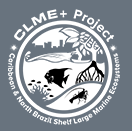

Cookies policy
We use cookies to enhance your site experience, to provide you with extra functionalities and for analytical purposes. You can consent to the use of such technology by accepting and closing this notice. If you want to find out more, please read our cookies policy here.
Welcome to SOMEE
MenuSOMEE content is still under development and is therefore not yet available online. However, you can already check for sample text and materials under the sections in blue text










